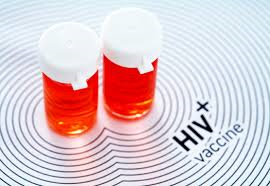 A radical new approach to vaccination seems to completely protect monkeys from HIV, US scientists report.Vaccines normally train the immune system to resist an infection.
A radical new approach to vaccination seems to completely protect monkeys from HIV, US scientists report.Vaccines normally train the immune system to resist an infection.
Instead, researchers at the Scripps Research Institute in California have altered the DNA of monkeys to give their cells HIV-fighting properties.The team describe it as “a big deal” and want to start human trials soon. Independent experts say the idea is worth “strong consideration”.
This technique uses gene therapy to introduce a new section of DNA inside healthy muscle cells.That strip of DNA contains the instructions for manufacturing the tools to neutralise HIV, which are then constantly pumped out into the bloodstream.
Experiments, reported in the journal Nature, showed the monkeys were protected from all types of HIV for at least 34 weeks.
As there was also protection against very high doses, equivalent to the amount of new virus that would be produced in a chronically infected patient, the researchers believe the approach may be useful in people who already have HIV.
The gene therapy approach turns cells into factories that constantly spew out the artificial HIV-killers, and the long-term implications of that are unknown.
The team want to begin trials in patients who have HIV but are unable to take conventional drug therapies within the next year.
Prof Nancy Haigwood, of Oregon Health & Science University, commented: “In the absence of a vaccine that can elicit broadly protective immunity and prevent infection, and given the lack of major breakthroughs on the horizon to provide one, the idea of conferring potent, sustained vaccine-like protection against HIV infection through gene therapy is certainly worth strong consideration.”
Dr Anthony Fauci, of the US National Institutes of Health, said: “This innovative research holds promise for moving us toward two important goals: achieving long-term protection from HIV infection, and putting HIV into sustained remission in chronically infected people.”
